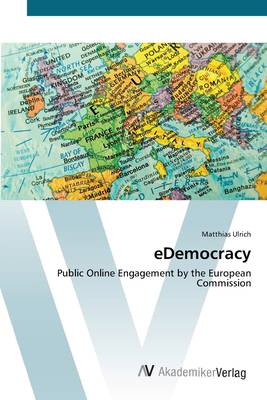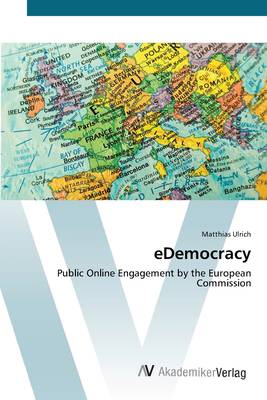
- Afhalen na 1 uur in een winkel met voorraad
- Gratis thuislevering in België vanaf € 30
- Ruim aanbod met 7 miljoen producten
- Afhalen na 1 uur in een winkel met voorraad
- Gratis thuislevering in België vanaf € 30
- Ruim aanbod met 7 miljoen producten
Zoeken
€ 60,95
+ 121 punten
Omschrijving
Revision with unchanged content. The provision of governmental services and the very nature of governance changes with the ever growing influence of Information and Communication Technologies in all governmental institutions. This book is examining the design and success of the European Commission's efforts to engage the citizens, consumers and businesses in policy- and decision making, in order to improve the democratic and political outcomes. The theoretical part of this book makes the rationale clear why reforms of governmental agencies are necessary. It provides theoretical evidence on why eDemocracy improves the working processes of political and bureaucratic agencies and how best practices can facilitate such initiatives. A sound design of eDemocracy programs is imperative, in order to attract citizens and businesses to make use of the initiatives on one hand, and to maximize the potential of an engaged citizenry in politics, on the other. The three pillar model, as is developed in this book, offers a platform for such design. It stipulates governments to offer two-way communication and participation tools that promote transparency, accountability, democratic affiliation and effectiveness of political programs and policy proposals.
Specificaties
Betrokkenen
- Auteur(s):
- Uitgeverij:
Inhoud
- Aantal bladzijden:
- 116
- Taal:
- Engels
Eigenschappen
- Productcode (EAN):
- 9783639408720
- Verschijningsdatum:
- 11/05/2012
- Uitvoering:
- Paperback
- Formaat:
- Trade paperback (VS)
- Afmetingen:
- 152 mm x 229 mm
- Gewicht:
- 181 g

Alleen bij Standaard Boekhandel
+ 121 punten op je klantenkaart van Standaard Boekhandel
Beoordelingen
We publiceren alleen reviews die voldoen aan de voorwaarden voor reviews. Bekijk onze voorwaarden voor reviews.







